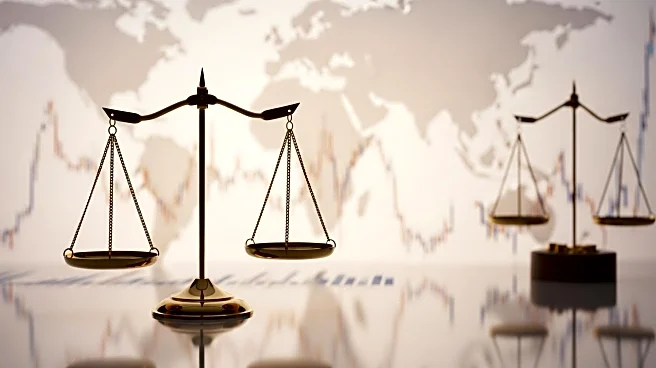What is the story about?
What's Happening?
Former IMF Chief Economist Gita Gopinath has criticized President Trump's tariff measures, stating they have acted as a tax on American consumers and fueled inflation without delivering economic benefits. Dubbed 'Liberation Day' tariffs, these measures were intended to address the U.S. trade deficit and revive domestic manufacturing. However, Gopinath argues that the tariffs have raised revenue for the government but have been borne by U.S. firms and consumers, effectively functioning as a tax. She notes that the tariffs have increased inflation, particularly for household appliances, furniture, and coffee, without improving the trade balance or manufacturing output.
Why It's Important?
The criticism from Gopinath highlights the potential negative impact of President Trump's tariff policies on the U.S. economy. By increasing costs for consumers and businesses, these tariffs may contribute to inflationary pressures without achieving the intended goals of improving trade balance and manufacturing. This situation underscores the complexities of trade policy and its implications for economic stability and growth. The tariffs have also affected international trade relations, with countries like India facing significant penalties on exports to the U.S.
What's Next?
The ongoing impact of the tariffs will likely continue to be a point of contention in U.S. economic policy discussions. The administration may need to reassess its approach to trade policy to mitigate inflationary effects and address the trade deficit. Additionally, the recent announcement of a 100 percent tariff on pharmaceutical products could further complicate trade relations and economic dynamics.
Beyond the Headlines
The broader implications of the tariffs include potential shifts in global trade patterns and economic alliances. As countries respond to U.S. trade policies, there may be long-term changes in international trade dynamics and economic partnerships. The focus on domestic manufacturing and trade balance may require strategic adjustments to ensure sustainable economic growth.
















